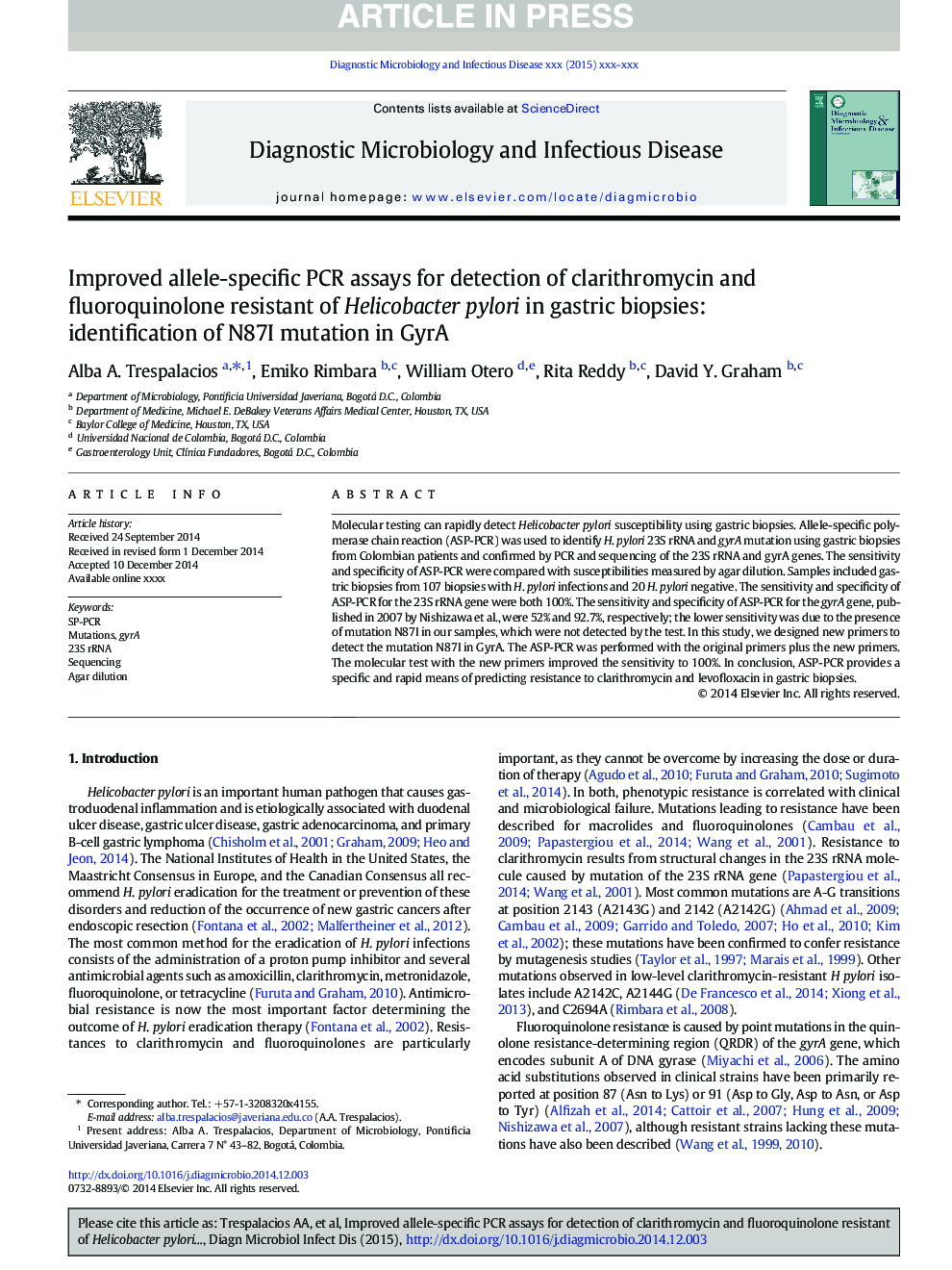| Article ID | Journal | Published Year | Pages | File Type |
|---|---|---|---|---|
| 6115715 | Diagnostic Microbiology and Infectious Disease | 2015 | 5 Pages |
Abstract
Molecular testing can rapidly detect Helicobacter pylori susceptibility using gastric biopsies. Allele-specific polymerase chain reaction (ASP-PCR) was used to identify H. pylori 23S rRNA and gyrA mutation using gastric biopsies from Colombian patients and confirmed by PCR and sequencing of the 23S rRNA and gyrA genes. The sensitivity and specificity of ASP-PCR were compared with susceptibilities measured by agar dilution. Samples included gastric biopsies from 107 biopsies with H. pylori infections and 20 H. pylori negative. The sensitivity and specificity of ASP-PCR for the 23S rRNA gene were both 100%. The sensitivity and specificity of ASP-PCR for the gyrA gene, published in 2007 by Nishizawa et al., were 52% and 92.7%, respectively; the lower sensitivity was due to the presence of mutation N87I in our samples, which were not detected by the test. In this study, we designed new primers to detect the mutation N87I in GyrA. The ASP-PCR was performed with the original primers plus the new primers. The molecular test with the new primers improved the sensitivity to 100%. In conclusion, ASP-PCR provides a specific and rapid means of predicting resistance to clarithromycin and levofloxacin in gastric biopsies.
Related Topics
Life Sciences
Immunology and Microbiology
Applied Microbiology and Biotechnology
Authors
Alba A. Trespalacios, Emiko Rimbara, William Otero, Rita Reddy, David Y. Graham,
